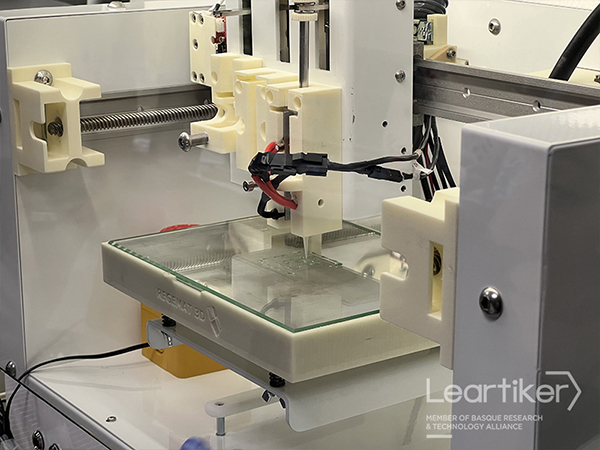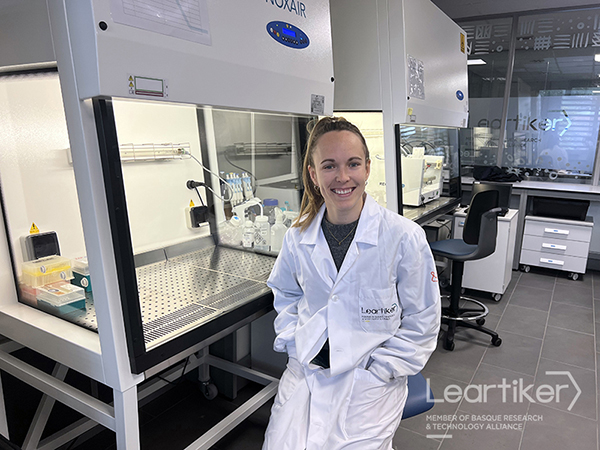Developing a biological model of cartilage in vitro
The aim of the Laika project is to create a 3D bioprinted in vitro cartilage model by developing a semi-interpenetrating hydrogel (semi-IPN) composed of alginate and hyaluronic acid (HA). This project has been carried out in collaboration with the University of the Basque Country (UPV/EHU) and REGEMAT 3D. The initiative is also the doctoral thesis being developed by our colleague Izar Gorroñogoitia, which completes Leartiker's line of research in tissue engineering.
Immersed in the final phase of the project to create the 3D in vitro cartilage model, Izar is cultivating hMSC cells and differentiating them into chondrocytes (cartilage cells), to then mix these chondrocytes with the hydrogel she has developed and print them in the bioprinter. All this research work is being carried out in our new ‘Applied Biomaterials Lab’ in the Health specialization. A space equipped with state-of-the-art technology that allows us to develop biomaterials in vitro to respond to recent advances in tissue engineering and cellular therapies.

Development of customized hydrogels
In addition to manufacturing different biological tissues in a precise way, using advanced technologies such as 3D printing and compounding, in this lab we also develop microgels and hydrogels with the aim of achieving novel personalized and non-invasive cellular treatments.
In his thesis, Izar has developed a semi-interpenetrating hydrogel (semi-IPN) composed of alginate and hyaluronic acid (HA) that will be used to develop 3D bioprinted cartilage. But first, the hydrogel needs to be tested for its suitability for the cartilage application. If the results are promising, mechanical stimulation will be applied later to analyse the influence of mechanical stimulation on the cellular response.

Advanced therapies and biomedicine
This thesis completes Leartiker's research line in tissue engineering, where we develop biomaterials and investigate cell regeneration processes within our Health specialization.
With the new laboratories, Leartiker has made a clear commitment to innovation and development in the biomedical field, thus aligning itself with current clinical demands and emerging trends.
The researchers in our Health specialization are immersed in the search for new alternatives in the field of biomedicine to contribute to a future where treatments are less invasive and more personalized and effective.

